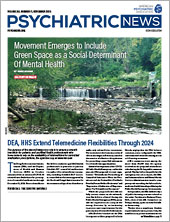FDA Seeks Fines Against Retailers Selling Illegal E-Cigarettes
In September the Food and Drug Administration (FDA)
issued complaints for civil money penalties against 22 retailers for the illegal sale of Elf Bar/EB Design e-cigarettes, a popular brand that appeals to youth. The FDA previously sent these retailers a warning letter instructing them to stop selling unauthorized tobacco products. During follow-up inspections, the FDA observed that the retailers had not corrected the violations.
The complaints seek the maximum civil money penalty of $19,192 for a single violation from each retailer. Although the FDA has issued civil money penalty complaints to retailers for selling unauthorized tobacco products in the past, this is the first time it is seeking civil monetary penalties for the maximum amount against retailers for this type of violation.
The retailers can pay the penalty, enter into a settlement agreement, request an extension of time to file an answer to the complaint, or file an answer and request a hearing. Companies that fail to act within 30 days of receiving the complaint risk a default order imposing the full penalty amount.
The FDA has also sent an additional 168 warning letters to other brick-and-mortar retailers for illegally selling Elf Bar/EB Design Products.
Karuna Therapeutics Submits NDA for Schizophrenia Drug
Karuna Therapeutics Inc. has submitted a New Drug Application (NDA) to the FDA for
KarXT (xanomeline-trospium) for the treatment of schizophrenia, the company
announced in September.
The NDA submission includes data from the EMERGENT-1, EMERGENT-2, and EMERGENT-3 trials, which evaluated the efficacy and safety of KarXT compared with placebo.
In all three placebo-controlled trials, KarXT met its primary endpoint, demonstrating a statistically significant and clinically meaningful reduction in Positive and Negative Syndrome Scale (PANSS) total score compared with placebo. For
example, in the EMERGENT-3 trial, 256 patients with schizophrenia who were experiencing psychosis were randomized to receive either KarXT or placebo twice daily for five weeks. The patients’ symptoms were assessed with the Positive and Negative Syndrome Scale (PANSS).
At the end of five weeks, PANSS total scores dropped a mean of 20.6 points in patients who took KarXT, compared with a mean reduction of 12.2 points in those who took placebo. In addition, scores in the PANSS positive subscale dropped 7.1 points for patients who took KarXT compared with 3.6 points for those who took placebo.
The most common adverse events, reported in at least 5% of patients who took KarXT, were nausea, dyspepsia, vomiting, constipation, headache, hypertension, diarrhea, and insomnia, all of which were rated mild or moderate in severity.
Two additional trials of KarXT, which are evaluating the long-term safety of the medication, are currently underway.
Phase 3 Trial Suggests Efficacy of REL-1017 for Major Depressive Disorder
In September Relmada Therapeutics Inc.
announced that patients in a phase 3 trial who took its investigational monotherapy
REL-1017 (esmethadone) for major depressive disorder for up to one year experienced sustained reductions of depressive symptoms and functional impairment.
A total of 627 patients with major depressive disorder were enrolled in the trial, named REL-1017-310. These patients included 423 who rolled over from placebo-controlled trials of REL-1017 and 204 de novo patients who had not previously participated in trials with REL-1017. In the de novo patients, the mean Montgomery–Åsberg Depression Rating Scale (MADRS) total score was 33.8 at baseline. Treatment with REL-1017 in these patients resulted in mean improvements in the MADRS total score of 11.3 points at day 7, 16.8 points at month 1, 19.9 points at months 3 and 6, and 22.5 points at month 12. When treated with REL-1017, 26.6% of de novo patients achieved clinical response by day 7, 51.0% by month 1, 60.7% by month 3, 63.4% by month 6, and 77.2% by month 12.
Orexo Submits NDA for High-Dose Opioid Overdose Reversal Drug
Orexo AB has submitted an NDA to the FDA for
OX124, its high-dose nasal
naloxone rescue medication for opioid overdose, the company
announced in September.
The submission includes data from a study in healthy volunteers, OX124-002, where OX124 showed a significantly faster and higher absorption of naloxone compared with intramuscular dosing with an injection reference product.
Orexo
previously submitted an application that the FDA rejected because of technical issues with the packaging process. ■
